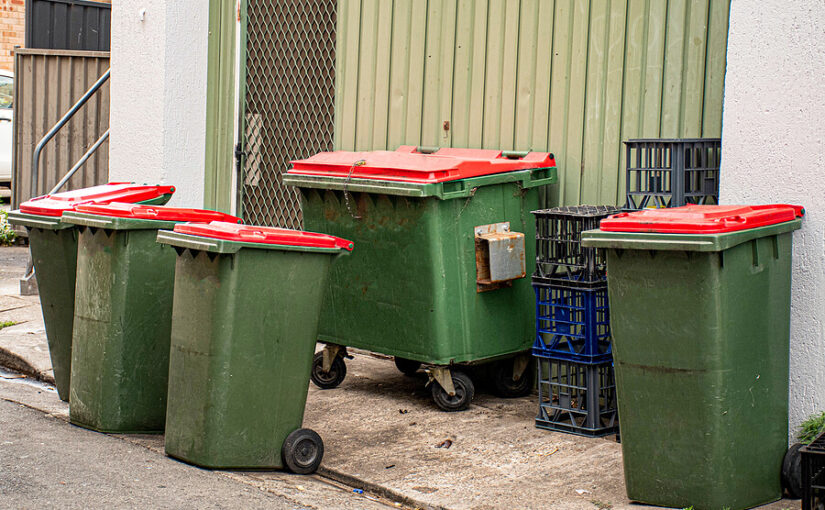The Impact of Commercial Waste Disposal on the Environment: Best Practices for Sustainable Solutions

Image Source: Google
Commercial waste disposal is a significant issue that has a considerable impact on the environment. Improper disposal of waste from businesses can lead to pollution of land, water, and air, as well as harm to wildlife and ecosystems. It is crucial for businesses to implement sustainable waste management practices to minimize their environmental footprint and contribute to a healthier planet. Refer: https://www.pepsrubbishremoval.com/commercial-rubbish-removal.
One of the best practices for sustainable waste disposal is to reduce the amount of waste generated in the first place. Businesses can achieve this by implementing waste reduction strategies such as using digital documentation instead of paper, buying products in bulk to reduce packaging waste, and encouraging employees to reuse materials whenever possible. By reducing the amount of waste produced, businesses can lessen their impact on the environment and save on waste disposal costs.
Another essential aspect of sustainable waste disposal is recycling. Businesses should provide convenient recycling bins for employees to separate recyclable materials such as paper, cardboard, plastic, and glass. By recycling these materials, businesses can conserve natural resources, reduce energy consumption, and decrease the amount of waste sent to landfills. Additionally, businesses can explore partnerships with local recycling facilities to ensure that their recyclable materials are properly processed and reused.
Composting is another sustainable waste disposal practice that can benefit the environment. Businesses can set up composting programs for organic waste such as food scraps, yard trimmings, and coffee grounds. Composting these materials can help reduce greenhouse gas emissions, improve soil health, and divert organic waste from landfills. Businesses can use the resulting compost to fertilize gardens or landscaping, closing the loop on their waste disposal process.
Proper hazardous waste disposal is crucial for protecting the environment and human health. Businesses that generate hazardous waste, such as chemicals, batteries, or electronics, must comply with strict regulations for disposal. It is essential for businesses to work with certified hazardous waste disposal companies to ensure that these materials are handled and disposed of safely and responsibly. By following proper procedures for hazardous waste disposal, businesses can prevent contamination of soil, water, and air, and avoid legal repercussions.
Collaborating with waste management professionals is another effective way for businesses to improve their waste disposal practices. Waste management companies have the knowledge and expertise to help businesses implement sustainable waste management solutions tailored to their specific needs. These professionals can assist businesses in developing waste reduction strategies, implementing recycling programs, and ensuring compliance with regulations for hazardous waste disposal. By partnering with waste management experts, businesses can streamline their waste disposal processes and minimize their impact on the environment.
Investing in waste-to-energy technologies is a sustainable solution for businesses looking to reduce their environmental impact. Waste-to-energy technologies convert waste materials into energy through processes such as incineration or anaerobic digestion. By harnessing the energy potential of waste, businesses can reduce their reliance on fossil fuels, lower their carbon footprint, and generate renewable energy. Waste-to-energy technologies also help divert waste from landfills, reducing methane emissions and prolonging the lifespan of these facilities.
Lastly, businesses can promote sustainability and environmental responsibility by educating their employees and stakeholders about the importance of proper waste disposal practices. By raising awareness about the environmental impacts of waste disposal and the benefits of sustainable waste management, businesses can foster a culture of sustainability within their organization. Training programs, workshops, and educational materials can help employees understand their role in waste reduction and encourage them to take proactive steps to minimize waste and protect the environment.
In conclusion, the impact of commercial waste disposal on the environment is significant, but there are sustainable solutions that businesses can implement to lessen their environmental footprint. By reducing waste generation, recycling materials, composting organic waste, properly disposing of hazardous waste, collaborating with waste management professionals, investing in waste-to-energy technologies, and educating employees, businesses can improve their waste disposal practices and contribute to a healthier planet. It is essential for businesses to prioritize sustainable waste management to protect the environment, conserve natural resources, and create a more sustainable future for generations to come.